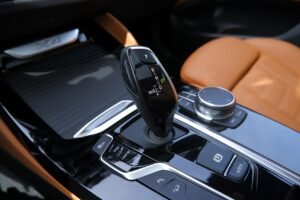In today’s ever-evolving automotive landscape, the quest for sustainability and efficiency has become paramount. With concerns about climate change and depleting fossil fuel reserves, manufacturers are increasingly turning towards hybrid vehicles as a solution. These innovative cars combine traditional internal combustion engines with electric propulsion systems, offering a compelling balance between power and efficiency. Let’s delve into the world of hybrid vehicles and explore how they are shaping the future of transportation.
Understanding Hybrid Technology
Hybrid vehicles utilize a combination of an internal combustion engine and one or more electric motors to power the vehicle. This dual powertrain setup allows for greater flexibility in driving conditions, as the car can seamlessly switch between gasoline and electric power or utilize both simultaneously. The electric motor assists the engine during acceleration, reducing the workload on the combustion engine and improving overall fuel efficiency.
Benefits of Hybrid Vehicles
One of the primary advantages of hybrid vehicles is their improved fuel economy compared to traditional gasoline-powered cars. By harnessing the energy from regenerative braking and utilizing electric power at lower speeds, hybrids can achieve significantly higher mileage in city driving conditions. Additionally, hybrid technology reduces harmful emissions, making these vehicles more environmentally friendly than their conventional counterparts.
Performance and Power
Contrary to popular belief, hybrid vehicles are not solely focused on efficiency—they also offer impressive performance capabilities. Some hybrid models even feature advanced hybrid powertrains that deliver ample power while maintaining exceptional fuel efficiency. This combination of performance and efficiency makes hybrid vehicles an attractive option for drivers seeking both excitement and eco-friendliness.
Maintenance and Cost Considerations
While hybrid vehicles offer numerous benefits, potential buyers should consider factors such as maintenance costs and resale value. Hybrid components, such as batteries and electric motors, may require specialized servicing, which could be more expensive than traditional engine maintenance. However, many manufacturers offer extended warranties on hybrid components to provide peace of mind to owners. Additionally, the initial purchase price of hybrid vehicles may be higher than conventional cars, but long-term savings on fuel and potential tax incentives can offset the upfront costs.
FAQs – Frequently Asked Questions
1. Are hybrid vehicles suitable for long-distance driving?
Hybrid vehicles are well-suited for long-distance driving, especially on highways where the gasoline engine can operate at its most efficient rpm range. Additionally, hybrid cars can utilize their electric motors for extra power during overtaking or climbing steep inclines, enhancing overall performance on long journeys.
2. How long do hybrid batteries typically last, and are they expensive to replace?
The lifespan of hybrid batteries can vary depending on factors such as driving habits and environmental conditions. However, most manufacturers offer warranties ranging from 8 to 10 years or more for hybrid batteries. While battery replacement can be costly, advancements in technology have led to decreasing prices over time, making it a more manageable expense for owners.
3. Can hybrid vehicles be charged at home like electric cars?
Unlike fully electric vehicles, hybrid cars do not require external charging stations as they generate electricity through regenerative braking and the internal combustion engine. However, plug-in hybrid models offer the flexibility to charge their batteries from external power sources, allowing for extended electric-only driving ranges.
4. Do hybrid vehicles require special maintenance compared to conventional cars?
While hybrid vehicles may require specialized maintenance for components such as batteries and electric motors, routine servicing for other mechanical systems remains similar to conventional cars. It’s essential to follow the manufacturer’s recommended maintenance schedule and seek out certified technicians familiar with hybrid technology to ensure optimal performance and longevity.
Conclusion
In conclusion, hybrid vehicles represent a compelling solution for drivers seeking a balance between power and efficiency. With advancements in technology and growing environmental concerns, hybrid cars have emerged as a viable alternative to traditional gasoline-powered vehicles. By harnessing the best of both worlds—internal combustion engines and electric propulsion systems—hybrids offer a sustainable and enjoyable driving experience for today’s conscientious motorists. As the automotive industry continues to innovate, hybrid vehicles are poised to play a significant role in shaping the future of transportation.




[…] See Too: Hybrid Vehicles: Balancing Power and Efficiency […]